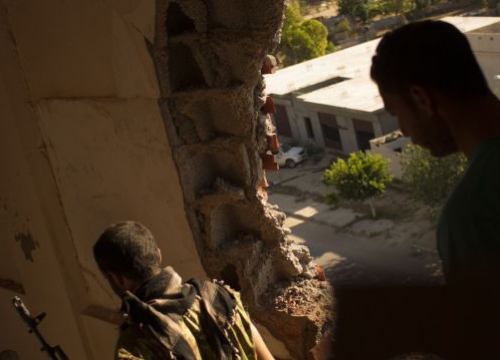Assessing Grounds for the Use of Force in Non-International Armed Conflict: What Legal Framework?
Geneva Academy Talks


ICRC
From Syria to Mali, Afghanistan and Yemen, the majority of today’s armed conflicts are non-international in character. In many cases, they involve the use of force by a state or states against external non-state groups. Despite the prevalence of such campaigns, the rules governing them, and in particular the legal regime applying to targeting and detention, continue to be disputed.
Once the threshold of armed conflict is crossed, is international humanitarian law the only branch of international law that applies to limit states’ actions in targeting or detaining members of armed groups? Or does international human rights law impose additional restrictions on states’ actions?
This panel will consider the legal framework for assessing the lawfulness of the use of force in non-international armed conflicts with regard to members of armed groups and how this relates to current state practice.
Moderator
- Annyssa Bellal, Strategic Adviser on International Humanitarian Law and a Senior Research Fellow, Geneva Academy
Panelists
- Anthony Dworkin, Senior Policy Fellow, European Council on Foreign Relations
- Jean-Baptiste Jeangène Vilmer, Director, Institute for Strategic Research (IRSEM), Ecole Militaire, France
- Marco Sassoli, Professor of International Law, University of Geneva
About IHL Talks
The IHL Talks are series of events, hosted by the Geneva Academy, on international humanitarian law and current humanitarian topics. Every two months, academic experts, practitioners, policy makers and journalists discuss burning humanitarian issues and their regulation under international law.
Video
Assessing Grounds for the Use of Force in Non-International Armed Conflict: What Legal Framework?
In this IHL Talk, panelists discussed the rules for military actions versus members of armed groups in non-international armed conflicts and how this relates to current state practice armed non-state actors









